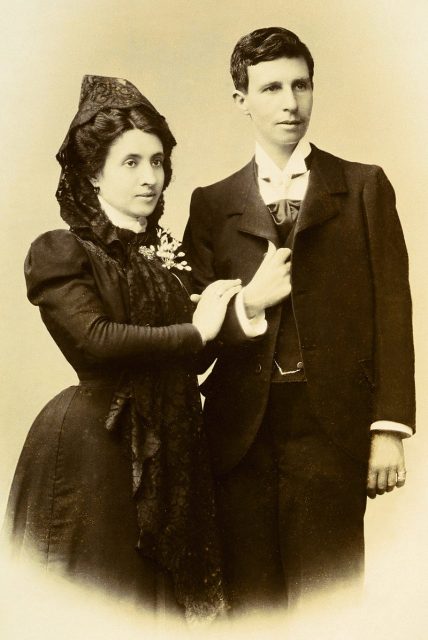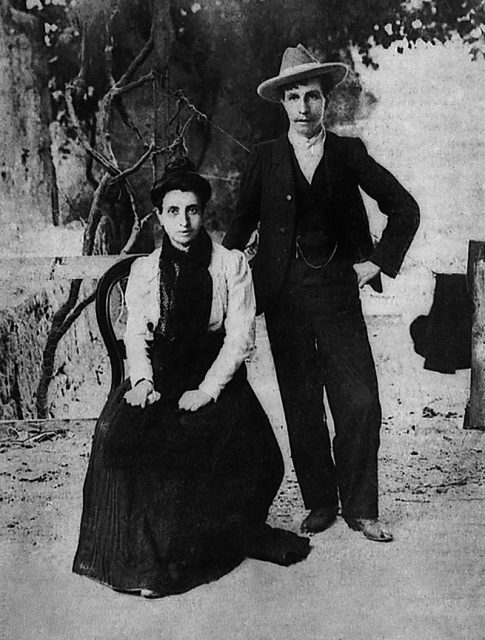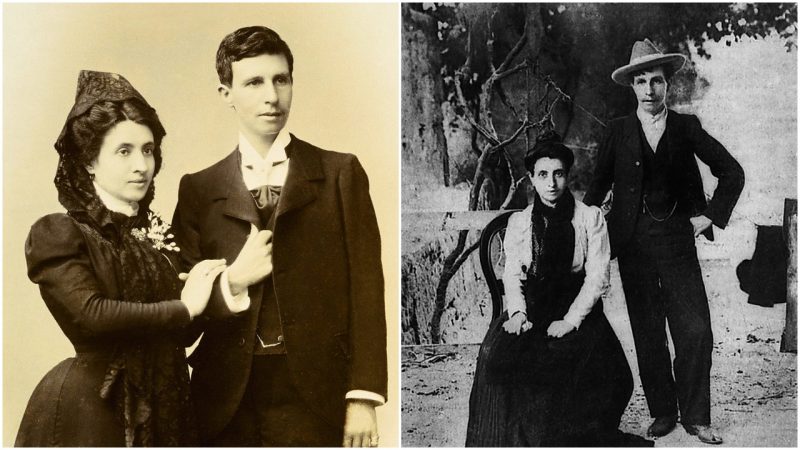Throughout history, many notable women have had to disguise themselves as men in order to achieve their dreams. For instance, in the 15th century, Joan of Arc dressed in men’s clothing in order to lead the French army. There’s also Rena Kanokogi, who, in 1959, disguised herself as a man so she could enter a YMCA judo tournament in New York. Kanokogi won the tournament but was forced to return her medal when officials discovered that she was a woman.
Chances are if you search for historical women who have disguised themselves as men, you wouldn’t immediately find the passionate and courageous couple Elisa Sánchez Loriga and Marcela Gracia Ibea at the top of the list. These two women fooled the Catholic Church into marrying them on June 8, 1901. Even after they were exposed, they were determined to stay together. While their story is full of bravery and love, it wasn’t necessarily a happily-ever-after fairy tale.
In the mid-1880s, Marcela was studying to become a teacher at a school in A Coruña, Galicia, Spain. Elisa worked at the school where they met and soon fell in love. When others noticed it was more than just a friendship, Marcela’s parents sent Marcela to continue her studies in Madrid. Nearly a decade passed before Marcela completed her studies and was assigned to teach at a school located in Dumbría. At the time, Elisa was teaching in the neighboring village of Calo, only 7 miles away. For two years, Elisa would walk each night to visit her love, Marcela.

Growing tired of having to hide their relationship, they devised a plan to get married. Elisa adopted a masculine appearance by cutting her hair short and wearing men’s suits. She also took the name of her cousin, Mario, who was killed in a shipwreck. Elisa, now Mario Sanchez, asked Father Cortiella, parish priest of San Jorge, to be baptized. Mario told the priest that he grew up in London with an atheist father who wouldn’t allow him to be baptized as a child. The priest didn’t suspect anything, and baptized Mario on May 26, 1901.
Around two weeks later, Father Cortiella married Mario and Marcela on June 8, 1901. At the time of their marriage, Marcela was a couple months pregnant. While little is known about her pregnancy, some believe it was premeditated to give validation to the marriage. Marcela and Elisa weren’t married long before neighbors decided to expose them to the press. The newlyweds’ story was blasted all over newspapers from Spain to France, Belgium, and Argentina.

The unwanted publicity from the press caused many hardships for Marcela and Elisa. To avoid persecution the pair fled to Porto, Portugal, where Marcela gave birth to a daughter. Elisa went by the name Pepe, and the couple tried to lay low while evading Spanish justice. Unfortunately, their time in Portugal was short and on August 18, 1901 they were arrested. The Portuguese government agreed to extradite them to Spain. Before the couple were sent back, they were tried and acquitted for their crimes in Portugal. They were set free before their extradition and quickly fled to Argentina.
In Buenos Aires, Argentina, Marcela, and Elisa would change their names yet again–Marcela became Carmen, and Elisa changed her name to María. They first found work in the domestic service industry but soon came up with a new plan. Elisa married a man by the name of Christian Jensen who was more than 20 years her senior. After they were married in 1903, María invited her sister, Carmen, and her daughter to live with them. Christian reportedly became suspicious after María refused to consummate their marriage. Rumors surfaced, and upon investigation, Christian discovered that his new wife was Elisa and her “sister” was actually Marcela.
By 1904, Elisa found herself in court again. Since her marriage with Jensen was valid, and this time one between a man and a woman, there were no charges against Elisa. After this trial, the trail to the whereabouts of Marcela and Elisa grew cold and remains unknown. In 1909 the Mexican press reported that Elisa had committed suicide in Veracruz, although it has yet to be confirmed.
According to the Diocesan Archive, their marriage certificate was never annulled by the Church nor the civil registry. Marcela and Elisa are considered to be the forerunners of both feminism and same-sex marriage in Spain. For now, what might have happened to them is unknown, but their legacy of commitment, courage, and love will live on
